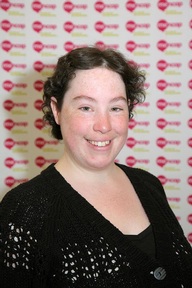Disability charity welcomes learning disability storyline in Call the Midwife
This Sunday’s episode of BBC series Call The Midwife, examines the discrimation faced by people with disabilities in the 1950s, with its tale of a love affair between a woman with Down Syndrome and a man with cerebral palsy.

The episode features the characters Jacob Milligan, who has cerebral palsy, and Sally Harper, who has Down's Syndrome, who fall in love and have a baby.
The pair, who are played by actors, Sarah Gordy and Colin Young, who have the same disabilities in real life, are immediately separated in the institution where they are living.
The episode shows the couple having to contend with prejudice and discrimination.
Sarah Gordy, who plays Sally Harper in the TV show is also a Mencap ambassador. She said: “It was rather horrible learning about the lives of people with learning disabilities in the 1950s. Those of us who are young today are so grateful to the people who have changed attitudes like actor Lord Brian Rix, who has been the president of Mencap for many years.”
Newly-wed Ciara Lawrence, a campaigns assistant at the learning disability charity Mencap, hopes the show will raise awareness of the discrimination many people with learning disabilities faced back in the 1950s and still face today.
She said: “As someone with a learning disability, I personally feel it is great that a storyline involving two people with a disability in a relationship will be shown on mainstream TV. Storylines like this will help to raise greater awareness of the challenges that people with a learning disability faced every day in the 1950s, with many of those challenges still around today.”
She added: “It’s fantastic that the two characters are being played by actors who have a disability in real life. It will show just what people with a learning disability can do. Hopefully it will lead to more actors with a learning disability being on TV, presenting disability in a positive way, and will inspire other TV programmes to feature more people with a learning disability.
“Everybody has a right to have a relationship and, with the right support, people with a learning disability can have a great relationship, get married and have children. I know this because I got married last year and this was made possible because I had the right support around me
“I think that the programme will really help to raise awareness of disability and will help to challenge people's often negative attitudes about learning disability.”
A learning disability is a reduced intellectual ability which can cause problems with everyday tasks – for example shopping and cooking, or travelling to new places – which affects someone for their whole life.
People with a learning disability can take longer to learn new things and may need support to develop new skills, understand difficult information and engage with other people.
The level of support someone needs is different with every individual. For example, someone with a severe learning disability might need much more support with daily tasks than someone with a mild learning disability.
Learning disability is not a mental illness or a learning difficulty. Very often the term ‘learning difficulty’ is wrongly used interchangeably with ‘learning disability’.
Latest News
 29-Jul-24
Dementia Bus gives carehome.co.uk staff insight into life with dementia
29-Jul-24
Dementia Bus gives carehome.co.uk staff insight into life with dementia
 01-Mar-24
Find out the top care homes in 2024
01-Mar-24
Find out the top care homes in 2024
 21-Mar-23
UK's top care homes in 2023 revealed
21-Mar-23
UK's top care homes in 2023 revealed
 03-Jan-23
carehome.co.uk launches free care helpline
03-Jan-23
carehome.co.uk launches free care helpline
 13-Dec-22
5 mins with Emily Whitehurst, chief operating officer for Constantia Healthcare
13-Dec-22
5 mins with Emily Whitehurst, chief operating officer for Constantia Healthcare